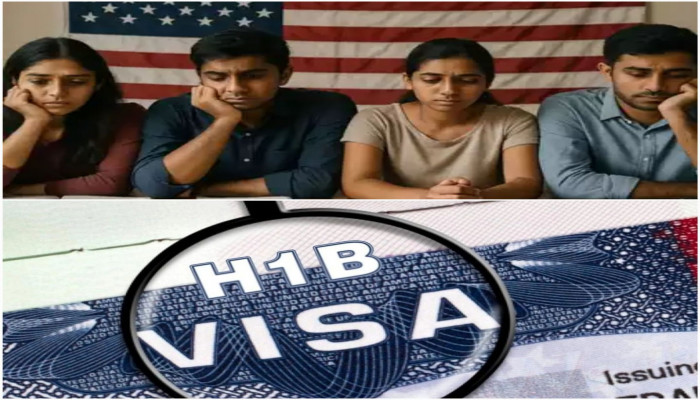US shuts down key immigration helpdesk, impacting H-1B and Green Card applicants nationwide
- In Reports
- 05:21 PM, Apr 05, 2025
- Myind Staff
The Trump administration has recently closed down the Office of the Citizenship and Immigration Services (CIS) Ombudsman, an important agency that helped thousands of immigrants deal with complicated visa issues. Immigration lawyers are worried about the impact of this move, especially on H-1B visa holders, international students on F-1 visas, and green card applicants, many of whom are from the Indian community.
According to the American Immigration Lawyers Association (AILA), the Ombudsman’s office handled close to 30,000 cases last year, assisting with delays, mistakes, and application disputes. Lawyers warn that shutting it down will make the U.S. Citizenship and Immigration Services (USCIS) less transparent and accountable.
Sharvari Dalal-Dheini, senior director for government relations at AILA, spoke to TOI’s Lubna Kably and said, “Individuals or businesses sought assistance from the CIS Ombudsman for a variety of issues, ranging from erroneous rejections of filings and denials to typographical errors on secure documents (such as Green Cards and Employment Authorisation Documents) and even mailing issues. Last year, the Ombudsman’s office assisted approximately 30,000 applicants.”
Immigration attorney Rajiv S Khanna, based in Arlington, explained that visa holders, especially those on F-1 and H-1B visas, often contacted the Ombudsman when delays at USCIS jeopardised their legal status. “F-1 and H-1B visa holders turned to the CIS Ombudsman when they hit bureaucratic roadblocks within US Citizenship and Immigration Services (USCIS) that threatened their legal status and livelihoods,” he stated. He shared an example of an engineer from Bangalore whose H-1B extension was stuck for nearly a year. Even after following all the necessary steps and submitting several service requests, the case didn’t move forward until the Ombudsman got involved. “After the Ombudsman’s intervention, approval came within two weeks,” Khanna further said.
Students have also seen positive outcomes when there were mistakes in handling Optional Practical Training (OPT) applications. Khanna shared an example where a student’s OPT was incorrectly denied because the documents were misunderstood. Thanks to the Ombudsman’s intervention, the case was reopened, helping the students keep their jobs and immigration status.
Dalal-Dheini shared another example where the CIS Ombudsman played a crucial role. A student’s STEM OPT application was rejected two months after submission because of a bank error during payment processing. Since the application deadline had already passed, the student couldn’t file again. “The CIS Ombudsman negotiated with the USCIS and was able to get the student reapproved,” she said.
Adam Cohen, a partner at the immigration law firm Siskind Susser, pointed out that the Ombudsman’s office also helped applicants receive key documents from USCIS and avoid unnecessary delays. “The CIS Ombudsman helped in acquiring receipt or approval notices, which were not received, and USCIS insisted on filing Form I-82,4, which entailed a prolonged process to get another one (i.e., a duplicate),” he explained.
The Ombudsman’s office collaborated with USCIS to provide guidance and hold sessions on frequent problems related to student and work visas. Dalal-Dheini noted that even employers found this helpful, especially when dealing with delays or missing employment documents for their international employees.
“What made the Ombudsman uniquely valuable was its independence from USCIS – they could objectively evaluate whether the agency was following its own procedures and policies,” Khanna conveyed. He explained that the Ombudsman plays a key role in situations where it’s unclear how to fix mistakes. In one example, a researcher’s green card application had been delayed for over three years because a background check wasn’t recorded correctly. Thanks to the Ombudsman’s intervention, the issue was finally resolved.
When asked if the office could assist students who were threatened with self-deportation due to campus activism, Cohen explained that it wasn’t within their scope. He clarified, “It involves other agencies, viz – Department of State (DOS) and Immigration and Customs Enforcement (ICE) – the Ombudsman’s office never had a review of DOS and ICE as part of its mission.”
The recent shutdown of the CIS Ombudsman and two other immigration watchdog agencies has sparked worry among immigration advocates. They’re concerned that this move further reduces the already limited options for people to challenge delays and mistakes in the immigration system. Without these oversight bodies, many could be left stuck in legal limbo with no impartial authority to turn to for help.







Comments